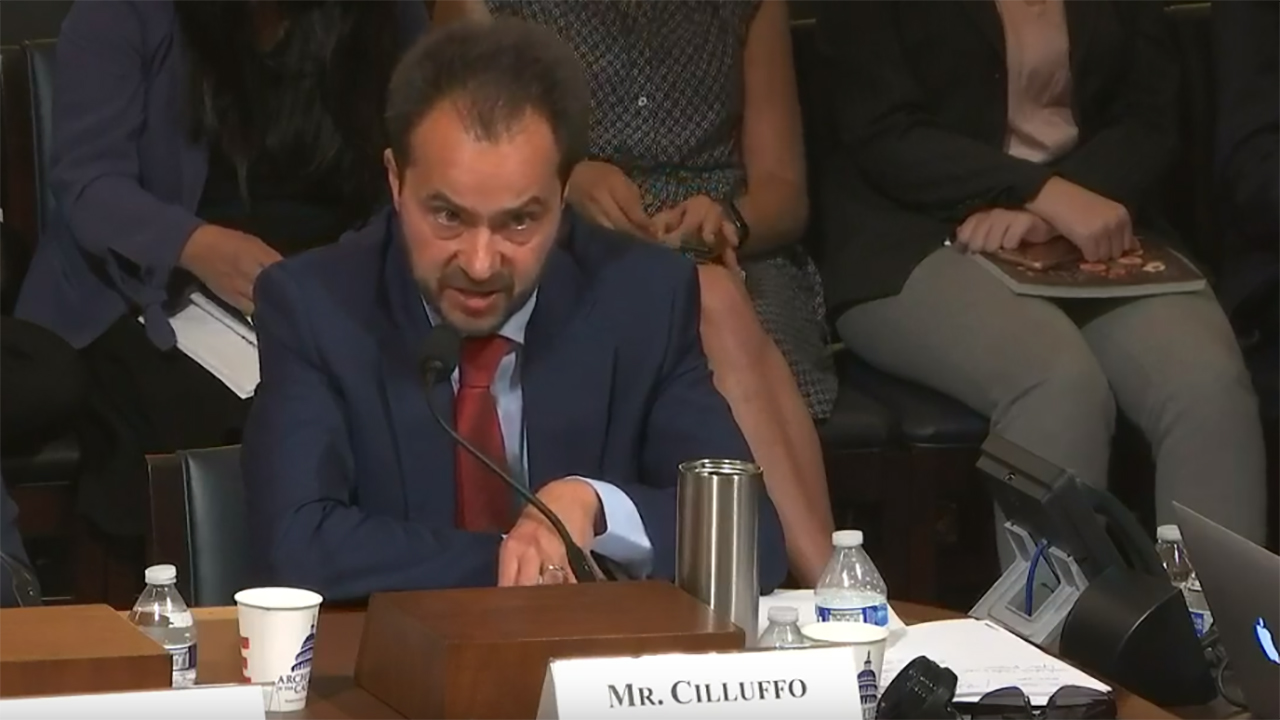Auburn’s Cilluffo to testify before House committee on intelligence and emerging threats and capabilities
Published: Jul 27, 2020 4:50 PM
By Austin Phillips
Auburn University’s Frank Cilluffo will once again testify in front of Congress on Thursday to address recommendations made by the U.S. Cyberspace Solarium Commission in March.
Cilluffo, who serves as the director of Auburn’s McCrary Institute and is a commissioner on the Cyberspace Solarium Commission, will testify in front of the U.S. House of Representatives’ Armed Services Committee’s Subcommittee on Intelligence and Emerging Threats and Capabilities. Cilluffo will be joined by commission Chairman and U.S. Sen. Angus King, I-Maine; commission Chairman and U.S. Rep. Mike Gallagher, R-Wis.; and Commissioner Patrick Murphy, who serves as the Distinguished Chair of Innovation at the United States Military Academy at West Point.
The hearing will take place at noon CT, and will be livestreamed here.
In March, the commission unveiled its report detailing a comprehensive strategic approach with policy recommendations for implementation. After conducting an extensive study including more than 400 interviews, the commission advocates a new strategic approach to cybersecurity — layered cyber deterrence. The desired end state of layered cyber deterrence is to reduce the probability and impact of cyberattacks of significant consequence.
The strategy outlines three ways to achieve this end state: shaping behavior by working with allies and partners to promote responsible behavior in cyberspace; denying benefits to adversaries who have long exploited cyberspace to their advantage and to American disadvantage; and imposing costs by maintaining the capability, capacity and credibility needed to retaliate against actors who target America through cyberspace.
The official report consists of more than 82 recommendations, which include 54 specific legislative proposals, organized by six key pillars: reform the U.S. government’s structure and organization for cyberspace, strengthen norms and non-military tools, promote national resilience, reshape the cyber ecosystem, operationalize cybersecurity collaboration with the private sector, and preserve and employ the military instrument of national power.
Media Contact: , austinp@auburn.edu, 334-844-2444
Cilluffo will testify Thursday in front of the U.S. House of Representatives’ Armed Services Committee’s Subcommittee on Intelligence and Emerging Threats and Capabilities.


